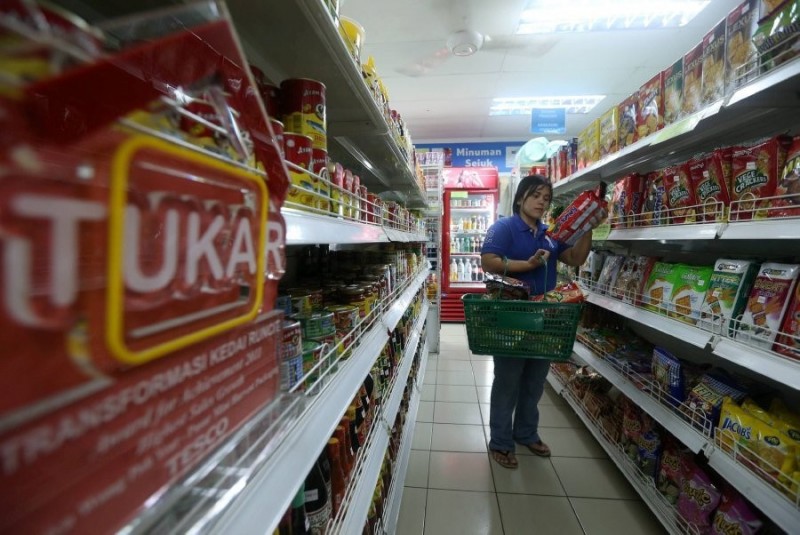
KUALA LUMPUR: Malaysia's direct-selling industry sales are expected to grow between 10 per cent and 15 per cent this year from the estimated RM20 billion for 2020, despite the emergence of the third wave of the Covid-19 pandemic.
Direct Selling Association of Malaysia (DSAM) president Datuk Tan Chong Guan said the pandemic had presented a silver lining for the sector as consumers were aware of the importance of having continued health supplement (vitamins and hand sanitiser) to boots their immunity as part of their precautionary protection from the virus.
"People realise that health is important. Thus, we see an increasing number of consumers purchasing health supplement via direct-selling activity," he told the New Straits Times in an interview recently.
Tan said direct-selling provided an alternative income stream for affected people who had been affected by retrenchment or pay cut due to the pandemic.
The sector's growth would be underpinned by the prospect of having an extra stream of income, online sales (social media) and e-commerce platform, making the direct-selling activity accessible.
According to the latest DSAM's statistics in 2020, sales of wellness accounted for 47 per cent), skin and personal care product (19 per cent), household goods and durables (16 per cent), food and beverage (8.0 per cent), clothing and accessories (5.0 per cent), home care (2.0 per cent), books and toys (2.0 per cent) and home improvement (1.0 per cent).
DSAM currently has 126 members/establishments comprising 3.5 million distributors (registered direct-selling agents) in Malaysia.
Tan said direct-selling served consumers with the avoidance of the middlemen (third party) as manufacturers utilise this platform to market their products and pass on the savings to end consumers.
"Most products are not easily available at the stores as they are unique. Direct seller establishes relationships with buyers, distinguishing marketing characteristic via personal touch/contact with the potential customer instead of waiting for the customers to come to a store," he said.
A direct seller is a person that sells consumer products and renders a service by direct personal contact with the consumer. In Malaysia, direct selling or direct retailing is a diversified business with sizeable product categories.
DSAM said direct-selling had begun to become a significant distribution channel within the country's total retail enterprise system.
Tan said consumers would still need a personal touch (trust-building for products) before purchasing products although direct-selling faces disruption stemmed from online sales.
"Online presence also increases our reach between distributors and customers."
Although direct-selling faces stiff competition with the emergence of online sales and e-commerce platform, Tan said all products sold via direct-selling were legitimately protected by the Direct Sales and Anti-Pyramid Scheme Act 1993.
"Direct sellers will ensure products sold have a return warranty, satisfaction guarantee, 10-days cooling off period from companies.
"Our members are governed by the code of ethics, presenting facts of the products as we cannot make an untrue claim and must adhere to code of conduct. We also have the Ethics Council to protect buyers from the scam, providing an advisory role for Domestic Trade and Consumer Affairs Ministry," he said.
New amendments to regulations are being outlined to safeguard consumers' and business owners' interest, ensuring that the direct selling act is relevant in these uncertain times.
Tan said direct-selling activity would likely be impacted by the second phase of the Movement Control Order (MCO 2.0) with limited mobility of distributors to provide a personal touch for consumers.
"We foresee shipments are delays and some may be diverted from certain ports due to the pandemic. Some cases have security and supply issue, and clearance delay, and this affected logistics."
However, he said most direct-sellers had begun to embrace and adapt to the online tool via social media to reach more potential customers while strengthening its relationship selling with existing buyers.
"Online platform is not a threat to direct-selling but rather the technology itself is an important element for us (direct-selling companies) have to embrace. We have to work with e-commerce platform to reach out to new customers and existing consumers."
Although online platform lacks personal touch with consumers compared to direct-seller, Tan said DSAM would work with e-commerce platform to regulate direct-selling products are sold online.
"These products are regulated by prices and cannot be sold online by unauthorised resellers. Last year, we proposed this regulation to the ministry and the enforcement has been made. Any direct selling products sold online have to get approval from direct selling companies namely Amway, Forever Living and Herbalife," he said.
He believes that the direct selling industry was not a sunset industry as it would continue to survive backed by human touch in selling the products.
"Human touch comprises marketing plan, demonstration and incentive). Direct-selling remains relevant but we need to evolve and embrace the technology to ensure the survival of the industry," he said.
Tan said digitisation was an important element for the industry to grow with continued efforts and investment to strengthen its online presence, especially via social media.
"Currently, many people are forced to go online as the reach increased tremendously in terms of sales. Hopefully, with less restriction and smoother delivery and imports, will spur higher growth."
The direct-selling industry posted RM17.8 billion in revenue in 2019 with professionals and industry leaders gathered to share their experiences on the use of online tools for direct selling.
In 2019, DSAM ranked seventh globally in sales and fourth in the Asia Pacific by the World Federation of Direct Selling Associations.
Source: https://www.nst.com.my/business/2021/04/681690/malaysias-direct-selling-sales-grow-15pct-2020s-expected-rm20bil

